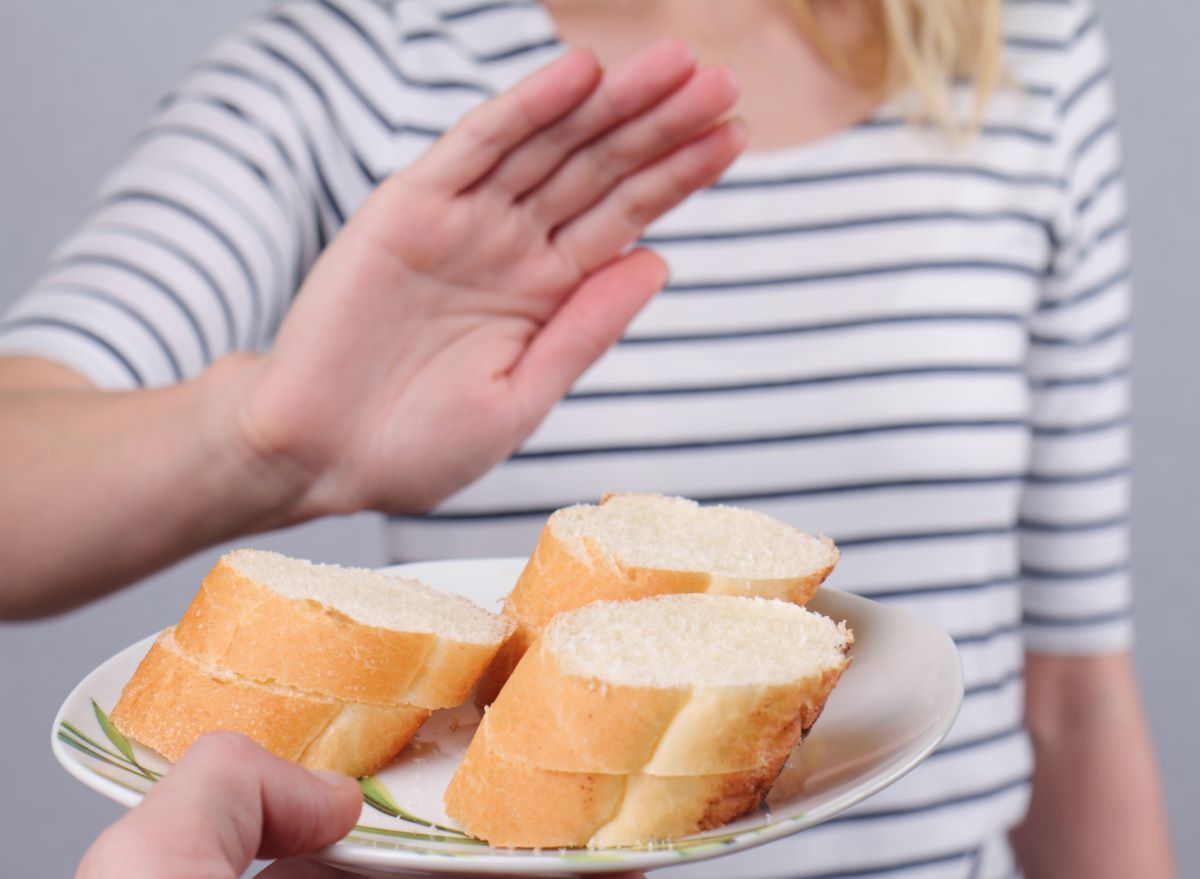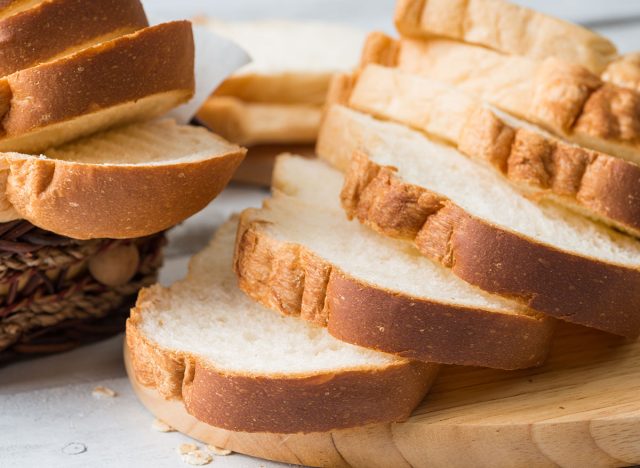The #1 Worst Bread to Eat for High Blood Sugar, Says Dietitian

High blood sugar, or hyperglycemia, happens when too much sugar is in the blood due to a lack of insulin in the body. Several factors can contribute to obtaining high blood sugar, such as poor food and drink choices, lack of physical activity, and illness. If not treated, hyperglycemia can lead to complications that affect your overall health, like your eyes, kidneys, nerves, and heart, so it’s important that you try to lower your blood sugar to moderate levels.
Although carbohydrates are necessary for your body, you need to watch which types you eat, especially when managing high blood sugar. There are different types of bread, for example, that are healthier than others. According to Lisa Young, PhD, RDN, author of the book Finally Full, Finally Slim and a member of our medical expert board, the worst bread to eat for high blood sugar is a refined grain with no added fiber.
“People with high blood sugar should include high-fiber bread, with at least three grams of fiber per slice,” says Young. “Bread with added sugar is also problematic as it can spike blood sugar further. Fiber helps to stabilize your blood sugar.”
There are two kinds of carbohydrates: simple and complex. Simple carbs are made up of sugars like fructose and glucose, which have simple chemical structures composed of only one sugar or two sugars. Complex carbohydrates have more complex chemical structures, with three or more sugars linked together. They also take longer to digest, meaning they have less of an immediate impact on blood sugar, causing it to rise gradually.
Although complex carbohydrates are seemingly better for the case of rising blood sugar, Harvard T.H. Chan School of Public Health states that dividing carbohydrates into simple and complex does not account for the effect of carbohydrates on blood sugar and chronic diseases. That’s why the glycemic index is important when managing blood sugar levels.

The glycemic index (GI) is a measure of how quickly and how much a specific food can make your blood sugar rise after eating on a scale from 0 to 100. Typically, high-fiber foods don’t contain as many digestible carbohydrates, so it slows the rate of digestion and causes a more gradual and lower rise in blood sugar. Grains that have been milled and refined—removed of the bran and the germ—have a higher glycemic index than minimally processed whole grains.
According to Harvard, foods with a high glycemic index such as white bread, are rapidly digested and cause substantial fluctuations in blood sugar. They also proclaim that eating many high-glycemic-index foods can lead to an increased risk for type 2 diabetes, heart disease, and being overweight.
Young suggests swapping out refined grain bread with whole-grain bread such as whole wheat, Ezekiel, or oat-based ones.